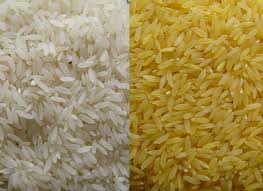Logistic regression on consumption of rice (case study of Offa local government Offa, Kwara State, Nigeria)
Keywords:
Logistic regression, Imported and locally produced rice, Backward elimination methodAbstract
This research work is on logistic regression on consumption of locally and imported rice using Offa local government, Kwara state as case study, it aimed to establish a model that can use to predict Age, Income, Expenditure and frequency of locally and imported produced rice and determine the best model among the variables of the outcome. The statistical tools that were used for the analysis of the data is logistic regression, backward elimination method were also employ to check the best model. The variable with the lowest difference among the non significant variable (i.e. change in -2LL) shows the model that are significant, at the end of the analysis it can be concluded that the best model is the one with age since it is not dropped from the model.
References
Ayanwale, A.B,. Amusan, C.A., 2012. Gender analysis of rice production efficiency in Osun: Implication for the agricultural transformation agenda. Paper presented at the 13th national conference of the Nigeria association of agricultural economist, Obafemi Awolowo university, Ile Ife, Nigeria, september 25th -27th.
Bamba, I., Diagne, A., Manful, J., Ajayi, A., 2010. Historic opportunities for grower in Nigeria. Grain de sel. No 51 July-September.
Bzugu, P.M., Mustapha, S.B., Zubairu, E.A., 2010. Adoption of NERICA 1 rice variety among farmers in jalingo local government area of Taraba state,Nigeria; J. Environ. Issues. Agr. Develop. Countries, 2(2&3).
Fagbemi, A., 2012. Government boosts rice production, get FAO recognition available http://www.ngrguardiannews.com/index.php?option=com_content&view=article&id=107915:govt-boost-rice-production-get-fao-recognition&caatid=1:national&Itemid=559 accessed15th January 2013.
F.A.O., 2000. Agricultural Development in Nigeria. Rome: Food and Agricultural Organization
Godwin, U., 2012. Rice farm, Milling Plant: Sure Money Spinner.http://www.ngrguardiannews.com/index.php?option=com_content&view=article&id=107915:govt-boost-rice-production-get-fao-recognition&caatid=1:national&Itemid=559 accessed15th January 2013.
Imolehin, E.D., Wada, A.C., 2000. Meeting the rice production and consumption demands of Nigeria with improved technologies. Nati. Cereal. Res. Inst., Badeggi Nigerstate, Nigeria. 12.
Jones, Monty, P., 1995. The rice plant and its environment. WARDA Training Guide 2. WARDA, Bouaké, 27-30.
Ojehomon, V.E.T., Adewumi, M.O., Omoteso, A.O., Ayinde, K., Diagne, A., 2012. Adoption and economies of new rice for Africa (NERICA) among rice farmers in Ekiti Sate, Nigeria. J. Amer. Sci., 8(2):423-429]. (ISSN: 1545-1003).http://www.americanscience.org. 60
Oluwatomi Olatoye., 2011. About Rice production and processing. The Nigerian tribune 16th August.
WARDA., 1996. Rice trends in sub-Saharan Africa, Second Edition. WARDA, Bouaké.

Published
How to Cite
Issue
Section
Copyright (c) 2020 Abdulkabir Muritala, S. Tunde Raji

This work is licensed under a Creative Commons Attribution-NonCommercial-NoDerivatives 4.0 International License.
